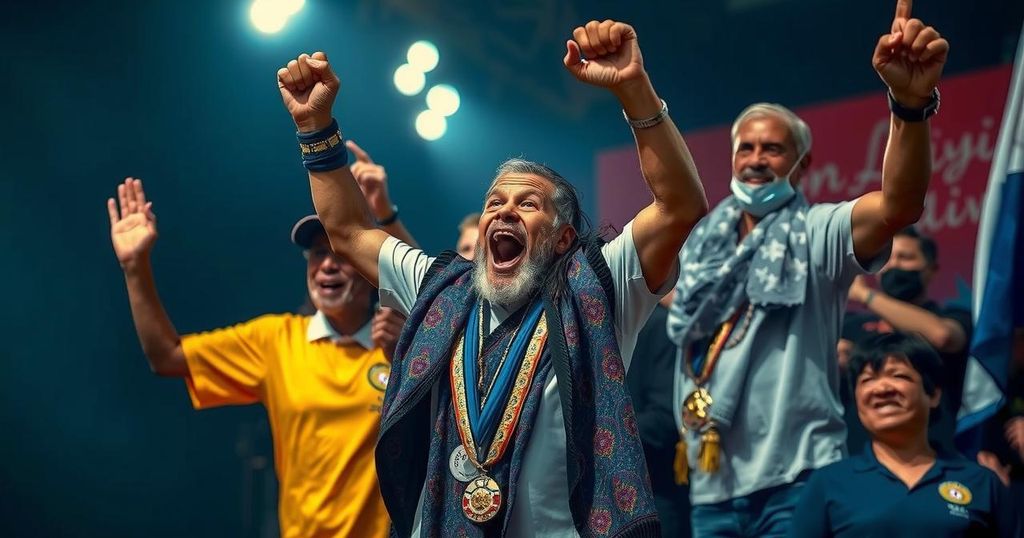Politics
Technology
ÁLVARO DELGADO, ARGENTINA, BRAZIL, BROAD FRONT, CAN, CANELONES, CHAMBER OF REPRESENTATIVES, DEMOCRACY, EUROPE/ASIA, GOOGLE, GOVERNANCE, HEMISPHERE, JOSE MUJICA, LEADERSHIP, LUIS LACALLE POU, OR, POLITICS, PRESIDENTIAL ELECTION, SOUTH AMERICA, TURKEY, WESTERN HEMISPHERE, YAMANDÚ ORSI
Fatima Khan
0 Comments
Yamandú Orsi Wins Presidential Election in Uruguay, Advocating Unity and Dialogue
Yamandú Orsi, a former history teacher, has won the presidential election in Uruguay, defeating Álvaro Delgado by a margin of more than three percentage points. His victory signifies a return to power for the leftist Broad Front after five years of conservative rule, with Orsi promising to foster unity and inclusivity among Uruguayans. He aims to avoid raising taxes to attract investors and emphasizes ongoing dialogue with all citizens, including those who opposed him.
Yamandú Orsi, a former history teacher, has emerged victorious in the presidential election of Uruguay, representing the left-wing Broad Front coalition. He secured his win against Álvaro Delgado of the conservative coalition by a margin exceeding three percentage points in the recent run-off election. Following the defeat, Delgado extended his congratulations to Orsi, marking a return to power for the Broad Front after five years under conservative leadership.
At 57 years old, Orsi is recognized as a protégé of former President José Mujica, renowned for his simple lifestyle. Orsi’s roots are humble, having been raised in rural Uruguay without electricity. His political career began as a history teacher, which later transitioned into a mayoral role in Canelones, where he notably facilitated Google’s establishment of a significant data center.
Throughout his campaign, Orsi adopted a business-friendly approach, emphasizing his intention to avoid tax hikes that could deter investment. In his victory speech, he affirmed his commitment to all Uruguayans, vowing to initiate continuous national dialogue and to pay heed to the perspectives of those who supported his opponent. He declared, “I’m going to be the president who builds a more integrated country, where we set aside our differences and nobody is left behind, neither economically, socially or politically.”
In his role as the incoming president, he is set to take office on March 1 next year, with outgoing President Luis Lacalle Pou promising to assist in a seamless transition. While Orsi’s Broad Front secured a majority in the Senate, they did not achieve a similar result in the Chamber of Representatives. This election highlights a moderation trend contrasting with the polarized political climate in several other nations within the Western Hemisphere, including Argentina and the United States.
The recent presidential election in Uruguay has unveiled significant shifts in the political landscape, particularly after a period of conservative governance. The victory of Yamandú Orsi symbolizes a restoration of power for the leftist Broad Front, which had dominated from 2005 to 2020. This election comes at a time when political divisions are intensifying globally, making Uruguay’s relatively moderate electoral outcome a notable exception in the region’s current climate. Orsi’s background as an educator and his alignment with former President Mujica’s values are essential to understanding his political approach and the expectations surrounding his presidency.
In conclusion, Yamandú Orsi’s victory in the Uruguayan presidential election signifies a pivotal moment for the country and its political trajectory. His commitment to inclusivity and dialogue reflects a desire to bridge divides within the electorate. The Broad Front’s return to power, combined with Orsi’s pragmatic stance on economic issues, positions him as a leader striving for unity amid a complex political environment, not only in Uruguay but also in the broader context of Latin America.
Original Source: www.bbc.com




Post Comment